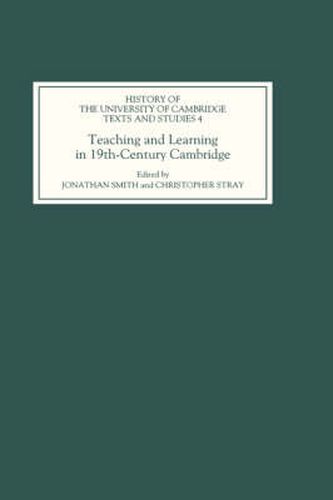Readings Newsletter
Become a Readings Member to make your shopping experience even easier.
Sign in or sign up for free!
You’re not far away from qualifying for FREE standard shipping within Australia
You’ve qualified for FREE standard shipping within Australia
The cart is loading…






It was in the 19th and early 20th centuries that Cambridge, characterised in the previous century as a place of indolence and complacency, underwent the changes which produced the institutional structures which persist today. Foremost among them was the rise of mathematics as the dominant subject within the university, with the introduction of the Classical Tripos in 1824, and Moral and Natural Sciences Triposes in 1851. Responding to this, Trinity was notable in preparing its students for honours examinations, which came to seem rather like athletics competitions, by working them hard at college examinations. The admission of women and dissenters in the 1860s and 1870s was a major change ushered in by the Royal Commission of 1850, which finally brought the colleges out of the middle ages and strengthened the position of the university, at the same time laying the foundations of the new system of lectures and supervisions. Contributors: JUNE BARROW-GREEN, MARY BEARD, JOHN R. GIBBINS, PAULA GOULD, ELISABETH LEEDHAM-GREEN, DAVID McKITTERICK, JONATHAN SMITH, GILLIAN SUTHERLAND, CHRISTOPHER STRAY, ANDREW WARWICK, JOHN WILKES.
$9.00 standard shipping within Australia
FREE standard shipping within Australia for orders over $100.00
Express & International shipping calculated at checkout
It was in the 19th and early 20th centuries that Cambridge, characterised in the previous century as a place of indolence and complacency, underwent the changes which produced the institutional structures which persist today. Foremost among them was the rise of mathematics as the dominant subject within the university, with the introduction of the Classical Tripos in 1824, and Moral and Natural Sciences Triposes in 1851. Responding to this, Trinity was notable in preparing its students for honours examinations, which came to seem rather like athletics competitions, by working them hard at college examinations. The admission of women and dissenters in the 1860s and 1870s was a major change ushered in by the Royal Commission of 1850, which finally brought the colleges out of the middle ages and strengthened the position of the university, at the same time laying the foundations of the new system of lectures and supervisions. Contributors: JUNE BARROW-GREEN, MARY BEARD, JOHN R. GIBBINS, PAULA GOULD, ELISABETH LEEDHAM-GREEN, DAVID McKITTERICK, JONATHAN SMITH, GILLIAN SUTHERLAND, CHRISTOPHER STRAY, ANDREW WARWICK, JOHN WILKES.